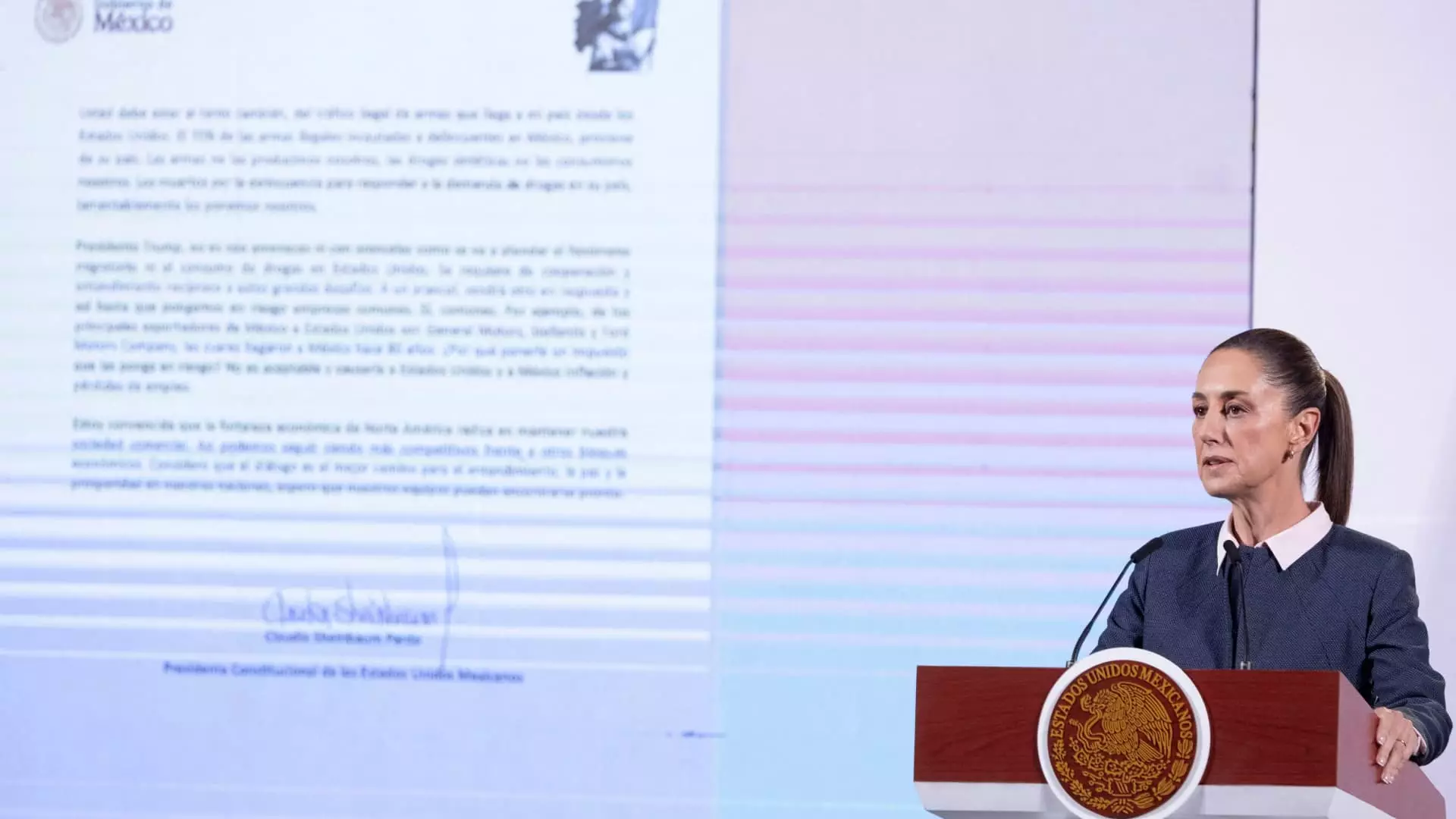In a firm declaration from the southern neighbor, Mexican President Claudia Sheinbaum has articulated a stance of retaliation should U.S. President-elect Donald Trump impose a proposed 25% tariff on Mexican imports. This proposed measure, which purports to protect American manufacturing, has been met with substantial pushback from Mexican officials, who argue that such a tariff could result in the loss of approximately 400,000 jobs in the United States alone and inflate costs for consumers across the border. This strong position underscores Mexico’s preparedness to escalate the trade dispute into a retaliatory arena, with President Sheinbaum firmly stating, “If there are U.S. tariffs, Mexico would also raise tariffs.” This declaration serves not only as a safeguard for Mexican interests but also highlights the tensions brewing over trade dynamics between the two nations.
Economy Minister Marcelo Ebrard backed Sheinbaum’s assertion by advocating for regional collaboration rather than descending into a tit-for-tat toward damaging protectionist policies. Ebrard’s remarks underscore the dangers associated with Trump’s tariff plans, which ostensibly contradict the USMCA trade agreement among Mexico, Canada, and the U.S. Beyond rhetoric, Ebrard painted a grim picture of the consequences, warning that the proposed tariffs would severely impact major American manufacturers such as Ford, General Motors, and Stellantis, particularly in the automotive sector. Given that 88% of pickup trucks sold in the U.S. are manufactured in Mexico, the potential price hike of these vehicles—estimated at $3,000—could alienate a consumer base that largely supported Trump during the elections.
This reality makes the stakes for U.S. companies operating in Mexico monumental. Ebrard pointed out that the situation could lead to massive operational challenges, particularly for enterprises that would face an effective doubling of tax burdens if tariffs were implemented, fundamentally changing the profitability landscape for American automakers in the region.
On a call with Trump, discussions reportedly spanned critical topics, including drug trafficking and immigration, wherein Trump asserted concrete measures would be prioritized. This conversation has given rise to speculation that negotiations rather than policy decisions may drive tariff strategies. Economists, including David Kohl from Julius Baer, have suggested that Trump might employ tariff threats as leverage in broader negotiations, not necessarily tied to trade. This speculative analysis highlights the unpredictability of U.S. trade policies under Trump’s leadership, indicating that businesses and governments both may need to brace for unorthodox tactics in the realm of international trade.
Despite the looming threat of tariffs, the Mexican peso demonstrated resilience, strengthening against the dollar following Sheinbaum and Trump’s exchange. This market reaction suggests that analysts may view Trump’s threats through a lens of negotiating tactics rather than as definitive determinations of trade policy. With both nations heavily intertwined economically, particularly in the automotive industry—which constitutes around 25% of all vehicle production in North America—the ramifications of such tariffs could extend well beyond the immediate industries affected.
Financial analysts have noted that Barclays estimated these tariffs could potentially eradicate profits for the Detroit Three, evidencing the severe disruption that could ensue if protective policies were enacted. In the wake of these uncertainties, spokespersons from major automotive firms have remained tight-lipped, avoiding comments that may further inflame the growing tumult affecting their operations.
The imperative for both Mexico and the U.S. is to navigate the tumultuous waters of impending trade relations with foresight. As articulated by officials, continued U.S.-Mexico cooperation is essential not merely for economic stability but also for broader political collaboration. As the USMCA treaty approaches a review in 2026, professionals like Katia Goya anticipate a substantial renegotiation rather than a mere extension of the existing agreement. Anticipating increased protectionism raises concerns over economic drawbacks such as slower growth, heightened unemployment, and augmenting inflation rates within the U.S.
Ebrard’s contention that tariffs could “fragment and divide” rather than unify the economic landscape reveals a profound concern about the potential for mutually beneficial agreements degrading into conflict. As such, both nations face a critical moment that will ultimately determine whether they can pivot toward constructive partnerships or succumb to the cycle of escalation and detrimental economic consequences. Such an approach is imperative for sustaining mutual prosperity and economic resilience in an increasingly interconnected world.


Leave a Reply